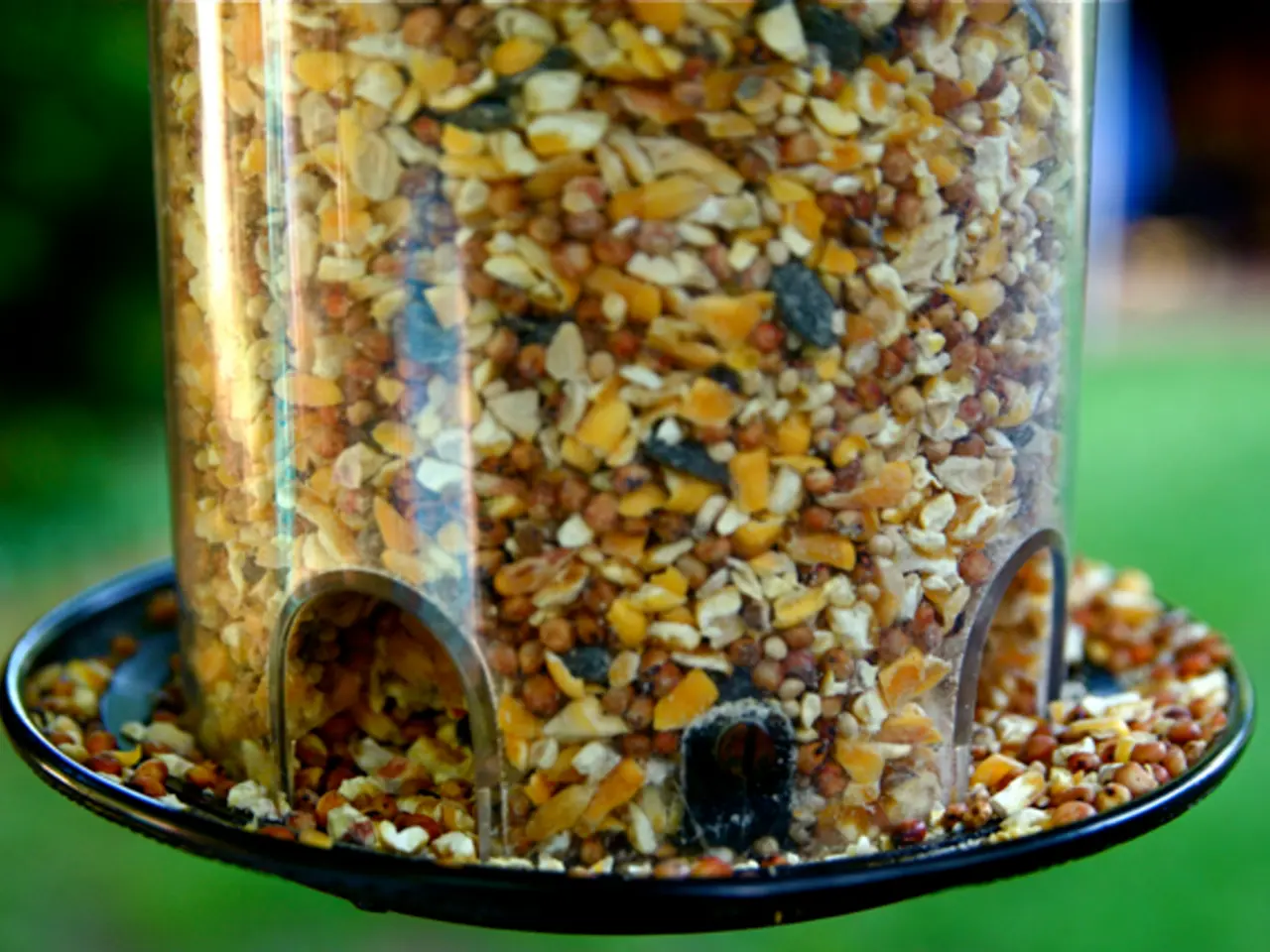Organic hair care products' secret component: Wheat protein
Consumers are increasingly preferring products with natural and identifiable ingredients, and the beauty industry is responding by focusing on the ethical sourcing of these ingredients. One such ingredient that has gained traction is hydrolyzed wheat protein (HWP).
Provital, a leading beauty brand, is demonstrating that beauty products can care for both hair health and the environment by using ethically sourced wheat. This wheat is non-GMO and grown using sustainable agricultural practices, reducing the environmental impact associated with pesticide use, soil degradation, and biodiversity loss.
HWP has been a staple in the beauty and personal care industry for years due to its ability to maintain skin hydration and add volume to hair. It swells the hair shaft to keep it hydrated, and forms a protective film on the surface of the hair to create a silky and shiny effect.
As consumer purchasing habits shift towards prioritizing ethical sourcing of natural ingredients, brands are adding HWP to their hair care products to meet this demand. However, the use of HWP isn't without its ethical considerations.
HWP is derived from wheat and contains gluten-related proteins that can trigger allergic reactions in sensitive individuals. While gluten molecules are generally too large to penetrate skin, some wheat-derived compounds may be absorbed through the skin or mucous membranes, posing risks, especially in personal care products applied near the face or mouth. Ethical practice dictates clear labeling and caution in products formulated for sensitive populations or those with celiac disease or gluten intolerance.
Some companies, like Green People, follow the principle of removing gluten-based ingredients from their lines entirely if there is doubt about safety, reflecting an ethical stance prioritizing consumer health over ingredient functionality.
HWP also represents a plant-based alternative to animal-derived proteins like keratin or collagen, aligning with ethical sourcing ideals that avoid animal exploitation or factory farming practices.
Sustainable sourcing practices for HWP include using wheat by-products from food industries to reduce waste, leveraging full plant utilization. Ethical brands also ensure traceability of wheat sources, favoring suppliers who practice sustainable land and water management, fair labor practices, and reduced carbon emissions.
In summary, the beauty industry’s ethical and sustainable approach to HWP involves careful management of allergen risks, preference for plant-based and organic wheat sources, transparent clean manufacturing, and cautious use or elimination in products designed for sensitive users. These practices together promote consumer safety, environmental stewardship, and ethical animal-free sourcing.
The change in consumer behavior isn't limited to ingredients; consumers also want sustainable sourcing. Brands looking to capitalize on the trend of HWP must clearly communicate that they have sourced wheat sustainably.
Wheat protein, or phytokeratin, is rich in amino acids and vitamin B1, making it an ideal ingredient for skincare and hair care products. Provital has developed an active ingredient called Keraveg, combined with Matrix Plus, which has a unique sequential release process of hydrolysates that repairs and rehydrates hair fibers for shiny and strong hair.
In the last three months, 18% of French customers have reportedly replaced a personal care product with a natural/organic version, demonstrating the growing demand for ethical and sustainable beauty products. With Provital's commitment to ethical and sustainable sourcing, they are well-positioned to meet this demand.
[1] Ethical Consumer, "Hydrolysed Wheat Protein," https://ethicalconsumer.org/hydrolysed-wheat-protein/ [2] Green People, "Our Story," https://www.greenpeople.co.uk/our-story [3] Provital, "Hydrolysed Wheat Protein," https://www.provital.com/en/technology/proteins/hydrolysed-wheat-protein/
- The beauty industry's focus on ethical sourcing extends to the use of hydrolyzed wheat protein (HWP), a natural and identifiable ingredient that maintains skin hydration and adds volume to hair.
- As a leading beauty brand, Provital prioritizes both hair health and environmental care by using ethically sourced, non-GMO wheat in its products, demonstrating a commitment to health-and-wellness and lifestyle that aligns with consumer preferences.
- Consumers are increasingly concerned about allergen risks associated with HWP, which can trigger reactions in sensitive individuals and may be absorbed through the skin or mucous membranes. Ethical practice demands clear labeling and caution in products formulated for sensitive populations.
- Some companies adopt an ethical stance that prioritizes consumer health over ingredient functionality, such as Green People, which removes gluten-based ingredients from their lines when doubt about safety arises.
- Sustainable sourcing for HWP involves reducing waste by using wheat by-products from food industries, favoring traceable, ethical suppliers, and implementing sustainable land and water management, fair labor practices, and reduced carbon emissions, reflecting the desire for ethical sourcing, food-and-drink, home-and-garden, fashion-and-beauty products that are part of a health-and-wellness lifestyle.




